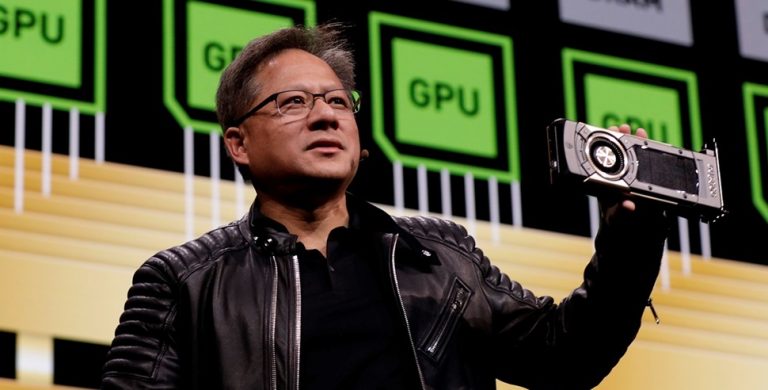
Nvidia Corp. CEO Jensen Huang has warned that U.S. export controls on high-end chips have failed to blunt China’s tech progress, with the country’s artificial intelligence ecosystem rapidly advancing to a point where it could no longer be taken for granted.
Instead of slowing China’s rise, Huang argued, the sanctions are strengthening domestic alternatives and eroding the technological gap once enjoyed by American firms.
“The Chinese competitors have evolved,” Huang said in an interview with Bloomberg Television on Wednesday. “Huawei has become quite formidable.” He added that major Chinese firms like Tencent are “doubling, quadrupling capabilities every year,” warning that the volume and sophistication of their systems are rising sharply.
Register for Tekedia Mini-MBA edition 17 (June 9 – Sept 6, 2025) today for early bird discounts. Do annual for access to Blucera.com.
Tekedia AI in Business Masterclass opens registrations.
Join Tekedia Capital Syndicate and co-invest in great global startups.
Register to become a better CEO or Director with Tekedia CEO & Director Program.
Huang’s remarks underscore a growing concern in the U.S. semiconductor industry that Washington’s restrictive measures are not only ineffective but counterproductive—shutting out American companies from one of the most lucrative global markets while pushing China toward technological self-reliance.
Huawei’s Success As Evidence of Defiance
Huang’s assessment is backed by mounting evidence that Chinese companies are defying U.S. restrictions and accelerating their development of domestic AI chips, particularly as U.S. suppliers like Nvidia are blocked from shipping high-performance processors to China.
Huawei, a central target of American sanctions, has emerged as a leading example of China’s defiance. The tech giant, long blacklisted by Washington, recently unveiled an AI chip comparable in performance to Nvidia’s H200, a GPU that until recently was among the most powerful available. This represents a dramatic leap in capability for a firm once seen as hobbled by U.S. restrictions.
Under updated U.S. export rules, even Nvidia’s downgraded chip, the H20, cannot be shipped to China.
Huang said that the company currently has no substitute chips for the Chinese market. Any future alternatives would require U.S. government approval, further complicating Nvidia’s position.
Backing Huang’s warning is a report by the Financial Times on Thursday, which revealed that China’s largest technology companies—Alibaba, Tencent, and Baidu—have already begun the process of switching to homegrown semiconductors. According to industry executives cited by the FT, these firms are testing domestic alternatives in response to dwindling stockpiles of Nvidia chips and increasingly stringent U.S. export rules.
The move marks a significant pivot in China’s tech industry, driven not only by necessity but also by a broader state-led push for semiconductor independence. The companies are actively sourcing chips from domestic suppliers such as Huawei and other emerging players, hoping to meet the growing demand for generative AI applications across the Chinese market.
A Market of Lost Billions
The stakes for Nvidia are enormous. Huang said the company expects to lose up to $8 billion in sales this quarter alone due to its inability to supply chips to China—the world’s largest market for AI infrastructure.
“You cannot underestimate the importance of the China market,” he stressed. “This is the home of the world’s largest population of AI researchers.”
Nvidia’s GPUs have long been the gold standard for training advanced AI models, but with U.S. policy now locking them out of China, the company risks ceding market share to domestic players who were once reliant on American hardware.
Risks to America’s AI Leadership
Huang’s concern goes beyond Nvidia’s bottom line. He warned that American export policy is threatening the broader ecosystem of U.S. technology leadership.
“We want all of the world’s AI researchers and developers to be using American technology,” he said. But that ambition is at odds with Washington’s current stance, which has effectively alienated a large swath of global talent and enterprise.
In his interview, Huang also responded to recent reports that the U.S. is revoking visas for Chinese students involved in sensitive research areas. He noted the importance of immigration to innovation, recalling his own journey as an immigrant from Taiwan to the United States.
“Look, I’m an immigrant. I know many immigrants that came to the U.S. to build a great life, and many of us have contributed greatly to the technology industry in the U.S.,” he said. “We would like the brightest to come here.”
Currently, Washington’s export policy has created an unintended consequence: instead of freezing China out of the AI race, it has sparked a faster-than-expected maturation of China’s own capabilities. Huang’s comments reflect a growing realization in the industry that while the geopolitical battle over technology continues, China is quietly narrowing the gap—and American firms are left watching from the sidelines.



